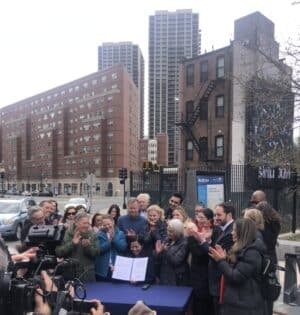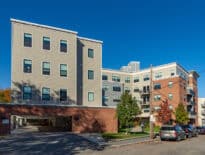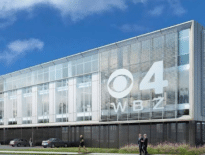Marking the creation of a new planning department that is independent from development approvals, Mayor Michelle Wu chose a backdrop that signified a potential end to heavy-handed government powers to shape Boston’s neighborhoods.
In a ceremony signing an ordinance creating a new municipal planning department, Wu said the changes at city hall represent the biggest reform in the city’s real estate permitting in 70 years. The press conference was held at 42 Lomasney Way in the West End, site of the only tenement that survived the neighborhood’s mid-century slum clearance to make way for the Charles River Park high-rises.
The changes, taking effect July 1, transfer the independent Boston Planning & Development Agency’s planning functions to a city hall department that will be reviewed as part of the city’s budget.
“Every mayoral candidate that got elected ran on a platform that included changes and getting rid of this agency, but once you get in there, it can be a scary thing to all of a sudden bring many more voices in,” Wu said following the ceremony. “But I really believe that this is the most fundamental way that we’re going to get it right.”
Many of the functions will remain unchanged, but Wu campaigned on a platform of separating the planning and development approvals, saying the previous system gave developers too much power to shape the future of neighborhoods. Since the early 1960s, the Boston Redevelopment Authority wielded both powers to approve projects and seize properties by eminent domain, while also acting as a de facto planning board.
The new planning department will be responsible for overseeing changes to the zoning code, updating urban design standards and overseeing coastal resiliency strategies and public land dispositions.




 |
| 




